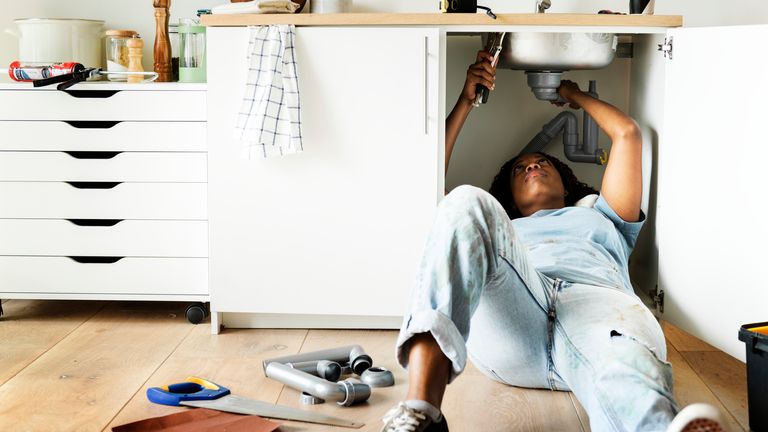Fees to dispose of DIY waste could be scrapped under plans to tackle fly-tipping
Consultation documents published by the Department for Environment, Food and Rural Affairs propose scrapping charges for getting rid of rubbish such as shed or fence panels, tiles, plasterboard and paving slabs.
Monday 11 April 2022 08:35, UK
Disposing DIY waste at council recycling centres in England and Wales will no longer incur fees under new government plans.
Existing legislation means that any rubbish generated through DIY, even at home, is generated as industrial waste, meaning local councils are not responsible for providing free disposal points.
This includes rubbish such as shed or fence panels, tiles, plasterboard and paving slabs.
Consultation documents published by the Department for Environment, Food and Rural Affairs propose scrapping charges for getting rid of such waste, with the hope that it could help reduce fly-tipping.
"Government believes householders should not be charged to dispose of DIY waste," it says.
"We are proposing changes to allow householders to deposit DIY waste for free.
"This will reduce the potential risk of fly-tipping, littering and backyard burning which create additional costs for local authorities and causes environmental issues."
Incidents of fly-tipping have surged in recent years, with more than one million recorded by local authorities in 2021, official figures show.
At the height of the first COVID lockdown, Sky News reported on how a smartphone app had also reported a huge increase in fly-tipping as people spent more time working on DIY projects at home.
Under the government's proposals, DIY waste would be re-classified as household waste, enabling it to be disposed without any charge like other rubbish and recycling.
Councils charge different amounts for getting rid of DIY waste, but the government believes its plans could save households as much as £10 per item.
The consultation is being held online and runs until 4 July.



